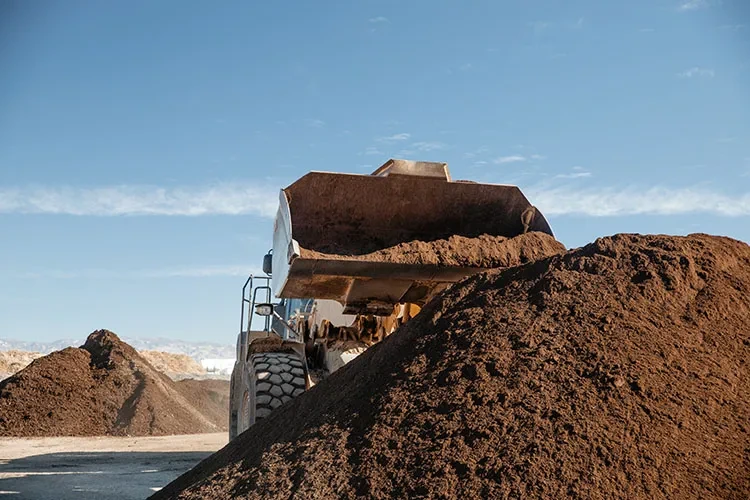
Composting in Tucson provides a nutrient-rich soil amendment that promotes soil microbial growth, improves plant health, and helps soil retain moisture. Composting is the natural process of transforming organic material such as leaves, fruit and vegetable scraps, and grains into a nourishing soil amendment that gardeners fondly nickname “Black Gold.”
Compost is filled with healthy bacteria and microorganisms. It energizes the soil food web, which is also made up of microscopic bacteria and fungi, in addition to larger earthworms, crickets, and many other life forms! Many fungi form symbiotic, or mutually beneficial, partnerships with plant roots, allowing plants to feed themselves more efficiently. Compost adds nutrients back to the soil that are necessary for these symbiotic relationships to take place. Research shows that compost enhances the ability of many plants to stand up to common diseases and, in the case of edible plants, may improve their flavor and nutrition.
Through household composting, you enhance your garden’s ability to grow healthy plants while simultaneously diverting your waste from landfills.
Why Compost?
According to the Food and Agriculture Organization of the United Nations, one-third of the global food supply is thrown away every year, wasting resources like water, soil, and labor in the process. In addition, as organic waste decomposes, it releases greenhouse gases like methane and carbon dioxide, which trap heat and are the largest cause of climate change.
As a result, reducing food waste is one of the easiest and most effective ways to mitigate climate change. Even on an individual level, changes in food habits can have an impact. The average individual wastes over 300 pounds of food every year.
The best way to reduce food waste, according to the Environmental Protection Agency’s Food Recovery Hierarchy, is to prevent it at the source. That means being conscious of how much food you actually consume, and how much is forgotten or thrown away. Businesses and individuals can do this by performing a waste audit.
It is important that any extra edible food is donated to hungry people first. While 40% of food is wasted here in Tucson, many people are also hungry here every day. In fact, the Tucson metro area has one of the highest food insecurity rates in the country. If food absolutely cannot be donated to people, then the next best avenue is to feed animals.
If you simply can’t prevent food waste, you can use methods like composting to limit its negative impact. Composting in Tucson is beneficial because it prevents food waste from emitting harmful greenhouse gas emissions into the atmosphere. Compost does this by promoting the sequestration of carbon in soil or the long-term capture of carbon dioxide from the atmosphere, and its subsequent storage in soil, plants, and geologic formations. Carbon is less harmful in soil, where it can contribute to the food web.
The composting practices of Compost Cats promote a circular economy where nearly nothing is wasted. Food scraps and organic debris are used to nourish the growth of new food sources.
All landfills have a lifespan, and many are rapidly approaching capacity. By diverting a portion of the current organic matter entering local landfills, Compost Cats is helping to keep them from filling up as quickly. Doing so significantly extends these landfills’ lives, reducing the need for new ones. Landfills are often situated in or near marginalized communities, resulting in a disproportionate negative impact on local public health, safety, and environmental quality. Compost Cats helps uphold environmental and social justice through waste diversion and materials cycling, ensures equitable access to natural resources, and improves wellness for all.
Food Security
As critical as waste reduction and diversion are to Compost Cats’ mission, the organization’s goals have grown considerably beyond these efforts. Compost Cats recognizes that while one-third of the global food supply is wasted every year, 824 million people around the globe also go hungry each year. As such, Compost Cats’ work includes initiatives that offer student employees professional development while helping to improve food security in Southern Arizona. We also strive to incorporate environmental justice education into our outreach programming.
As of 2019, 12.6% of Tucson residents are food insecure, and as of 2021, 15.1% of the population also lives in poverty. Food insecurity is defined by the U.S. Department of Agriculture (USDA) as “a lack of access to adequate and nutritionally sound food for a healthy, active life due to economic and/or social conditions.” Therefore, food insecurity and poverty are directly related. Over the last several years, Compost Cats has been increasingly redistributing still-edible foods to groups like the Community Food Bank and the University of Arizona Campus Pantry to lower these statistics.
